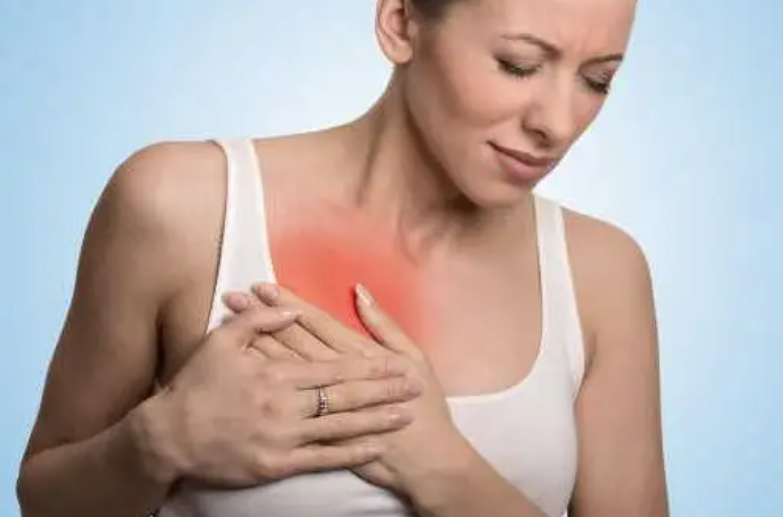
Heart disease is a high incidence disease of the elderly, but it is not exclusive to the elderly, and some types of disease are no less prevalent in the young than in the elderly. Since the organs of the whole body are in the best condition in young people, the symptoms are often not obvious or tolerated in the early stage of the disease because of strong compensatory capacity.
After a period of time, "small problems" will grind into "big problems", and even lead to bigger problems, and finally need to pay a greater price.
So what are the heart conditions that young people need to be particularly aware of?
Atrial defect causes valve infection
"Atrial septal defect" is a congenital heart disease, and the occurrence of infective endocarditis is likely to be related to this congenital heart malformation, which makes blood easy to accumulate in the heart, thereby infecting the heart.
The early stage of the disease did not pay enough attention to the problem, if the "atrial septal defect" is treated early, it can largely avoid the heart infection behind, and the valve will not be eroded by infection.
These heart attacks are more common in young people
Some heart diseases are more common in young people, and if they are paid enough attention and treated early, the treatment effect is usually very good.
- Congenital heart disease:
Congenital heart disease accounts for 28% of all congenital malformations. Although many congenital heart diseases are treated in infancy or childhood, some patients with congenital heart disease still do not know they have congenital heart disease when they are adults due to regional differences in the level of medical treatment and the early symptoms of some diseases are not obvious. Some patients do not pay attention even if they know because the symptoms are not obvious.
However, when symptoms of this kind of disease appear in the later stage, the disease often has developed to have greater damage to the heart and lungs, and the damage is difficult to fully recover.
- Heart valve prolapse disease:
The heart has four valves that open and close to allow blood to flow in one direction along the edge of the heart. When a lobe prolapse causes the valves to not close tightly, causing the valves to regurgitate, and some of the blood will not flow forward but back into the heart. Chest tightness, shortness of breath, edema of lower limbs and other symptoms were caused by overloading of the heart gradually.
In the early stage of the disease, valve prolapse is a great chance to be repaired, but the valve damage in the later stage of the disease is serious, difficult to repair, and may even have to be removed to replace the artificial valve, which requires lifelong medicine.
Because young people have strong compensatory capacity, the symptoms may not be obvious in the early stages of the disease, and the symptoms are often when the valve prolapse is more severe.
- Infective endocarditis:
Bacteria enter the heart with the blood and stay in the heart to erode the heart tissue, causing heart infections. A relatively large proportion of patients infected with endocarditis have structural heart diseases, such as the two types of diseases described earlier, the presence of these diseases make the patient's blood with bacteria stay longer in the heart, and bacteria are more likely to adhere to the heart and cause infection.
Once infected, there may be many complications and even permanent sequelae. If there are already heart disease patients, persistent fever, chest tightness, shortness of breath, early medical treatment is the most effective way to reduce complications.
Of course, in patients with heart disease, early treatment is the most effective means to prevent infective endocarditis.
- Viral myocarditis:
An inflammatory disease of the heart muscle that occurs after a viral infection enters the heart with the blood. Its early symptoms and common viral infection symptoms are similar, such as fever, body aches, fatigue, later appear chest pain, chest tightness, dyspnea and other symptoms of cardiac function decline.
There is no specific treatment, mild cases can rest and symptomatic treatment after self-rehabilitation, severe cases may need to use cardiac assistance device treatment.
How can young people detect heart problems early?
First of all, in terms of symptoms, many heart diseases will have chest tightness, palpitations, chest pain, breathing difficulties and other symptoms, if there are the above symptoms, you should rule out whether there is a heart problem.
Second, auscultation. Auscultation is a simple way to identify structural heart disease, and if you hear different sounds around the heart, you can go to the hospital for further examination to confirm the diagnosis.
Third, family history. If a close relative in the family has had a history of heart problems, because certain heart disease has a genetic predisposition, preventive examinations under the heart should rule out heart problems.

